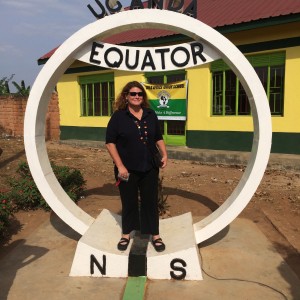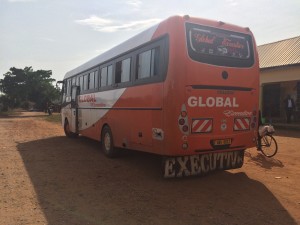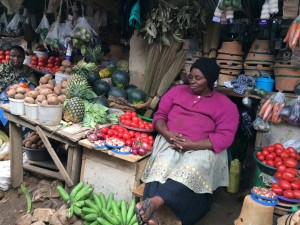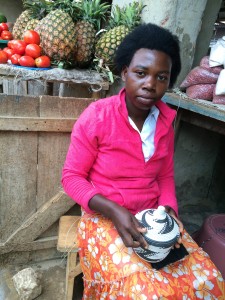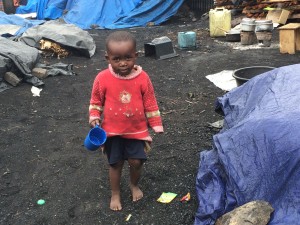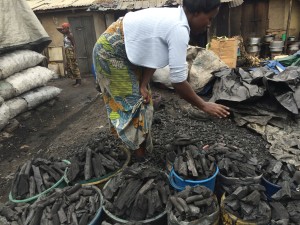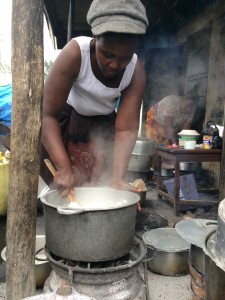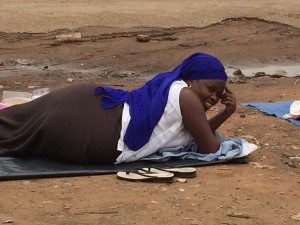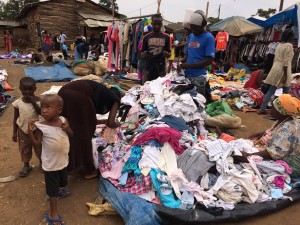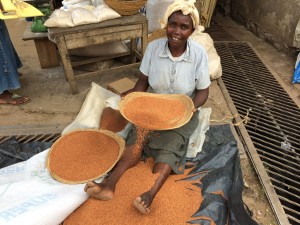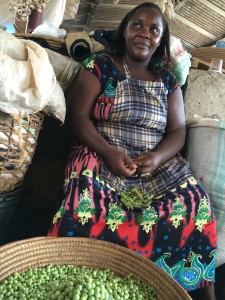Eight days, mostly running workshops, in Uganda is not enough to absorb its colour, smiles and richness.
I wind through crowded colourful neighbourhood markets with baskets of mangoes and papaya; women sort fine brown seeds of millet, swirling the seeds up in the air; other women are shelling peas while sturdy young women sort charcoal into large baskets.
Small children rush up to you, reaching to touch the hem of your shirt, and grin shyly before then dashing to hide behind their mothers’ skirts or stacks of corrugated iron.
The rich smells of peanuts roasting in their skins mingles with open drains and the smell of sodden ground after recent rains.
In other markets, young women loll amongst piles of second hand clothes as young men pretend to assist while dancing to the reggae music blaring out. Other young men hang around utility vehicles filled with pineapples. Bicycles laden with huge bunches of bananas trundle past on their way to another market.
The landscape as we drive from Entebbe and the shores of Africa’s largest lake, Lake Victoria, is a mix of rolling hills, low swamps, field of reeds, pockets of jungle and sweeping savanna plains covered with low shrubs and Mohani trees. Scattered along the road from Kampala to Mbarara are townships of small brick houses and huts, some made from traditional bricks and others mud-baked in the large kilns that regularly dot the landscape.
Traffic calming is big in Uganda, with each small town having its own series of speed bumps to slow the unsuspecting driver.
Our stay at Mbarara’s Lake View Hotel is pleasant with cool clear evenings and days that don’t require an air conditioner, just a good breeze. The hotel was built in the early 90s but closely follows a 70s style-book with low ceiling dark rooms decorated with orange curtains and tapestry chairs.
The food at the local coffee bar is dreadful, and the choices for vegetarians are very limited anywhere in Uganda. But there’s nothing quite like a Nile Special beer on the hotel’s porch as the sun sets.
